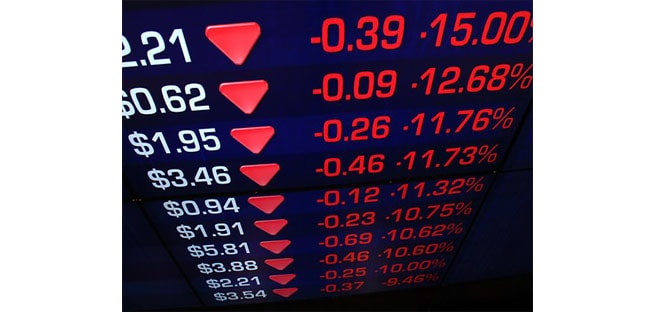What do you think of losses on the trade market? Silly question, isn’t it? I’m sure every trader knows the sour feeling of defeat. The feeling the whole world is just against you, while you’re the most unhappy person in this world. But trust me, it could be worse, much worse than this!
In this article, I’d like to emphasize 7 traders who lost 2 billions dollars and more. Perhaps, this list could be longer, but because of the secretive nature of many hedge funds and fund managers, some notable losses may never be reported to the public.
So, it is worth killing yourself and distracting your nerves for losing a few thousand? One is right for sure: money can not disappear completely. If someone is loosing on trade market, someone else is definitely making a profit.
7. Isac Zagury
$2.52 Billion
Brazil company Aracruz was once the biggest producer of eucalyptus tree pulp. It reported a loss of more than $2 billion in December 2008 due to currency-derivatives trades that involved Isac Zagury, the company’s CFO. The company loaded their money into foreign exchange options just as the Brazilian real started to slump. And slump some more. In eight weeks, Brazil’s currency lost more than 20% of its value.
6. Yasuo Hamanaka
$2.62 Billion
Yasuo Hamanaka is a man who formerly was the chief copper trader at Sumitomo Corporation, one of the largest trading companies in Japan, and was also known as “Mr. Copper” because of his aggressive trading style and “Mr. Five Percent” because that is how much of the world’s yearly supply he controlled.
On June 13, 1996, Sumitomo Corporation reported a loss of 1.8 billion dollars in unauthorized copper trading by Hamanaka on the London Metal Exchange. But in September 1996, Sumitomo disclosed that the company’s financial losses were much higher at 2.6 billion dollars (285 billion yen).
Considering the size of the losses and the fact that they were accumulated over more than ten years, many believe that Hamanaka could not have been able to corner the copper market without some kind of knowledge or authorization from his supervisors. Hamanaka was sentenced to eight years in prison in 1998 and was released in July 2005, one year early.
5. John Meriwether
$4.6 Billion
John Meriwether is best known for founding Long Term Capital Management (LTCM), which made big headlines in 1998 when it lost 90% of its $4.8 billion in Interest Rate and Equity Derivatives assets after Russia devalued its currency and defaulted on its loans. A bailout by the New York FED that year was organized, but the damage to Meriwether’s formerly illustrious reputation was done.
4. Bruno Iksil
$5.8 Billion
JPMorgan Chase trader Bruno Iksil (nicknamed the London Whale) gambled big on an obscure corner of the credit market and lost in Credit Default Swaps in 2012.
The London Whale not only incurred $5.8 billion in trading losses but allegedly also mismarked some of the losses to cover up their magnitude. His supervisor, Javier Martin-Artajo, was sued by the bank for assisting in the cover-up, and JPMorgan has been the subject of an investigation by the U.S. government.
3. Bruno Iksil
$6 Billion
Brian Hunter, the former head natural-gas trader for Amaranth Advisors, the $10 billion hedge fund that infamously imploded in the fall of 2006 after Hunter’s bets on the price of natural gas went spectacularly wrong, has earned himself a permanent spot among the legends.
Result: the company completely collapsed in 2006 after losing more than $6 billion.
2. Jerome Kerviel
$7 Billion
Jerome Kerviel a Societe Generale bank’ trader that was charged with losing more than $7 billion in company assets by conducting a series of unauthorized and false trades between 2006 and early 2008. When company managers discovered that Kerviel had conducted tens of billions of dollars’ worth of unauthorized trades, they rushed to close out the open positions and contain the extent of the fraud. Several of the trades were closed out with heavy losses due to a falling market at the time of sale.
1. Howie Hubler
$9 Billion
In 2008 Howie Hubler lost $9 billion – more money than anyone before or since in the history of capitalism. Не invented a form of insurance product (credit default swap) to stop banks such as Morgan Stanley losing money on subprime mortgages.
From 2004 to 2006, he placed big bets against the U.S. real estate bubble using credit default swaps. But the economy’s decline happened slower and when the real estate market collapsed in 2008, Hubler and Morgan Stanley lost $9 billion.
Find more in Wikipedia article List of trading losses






